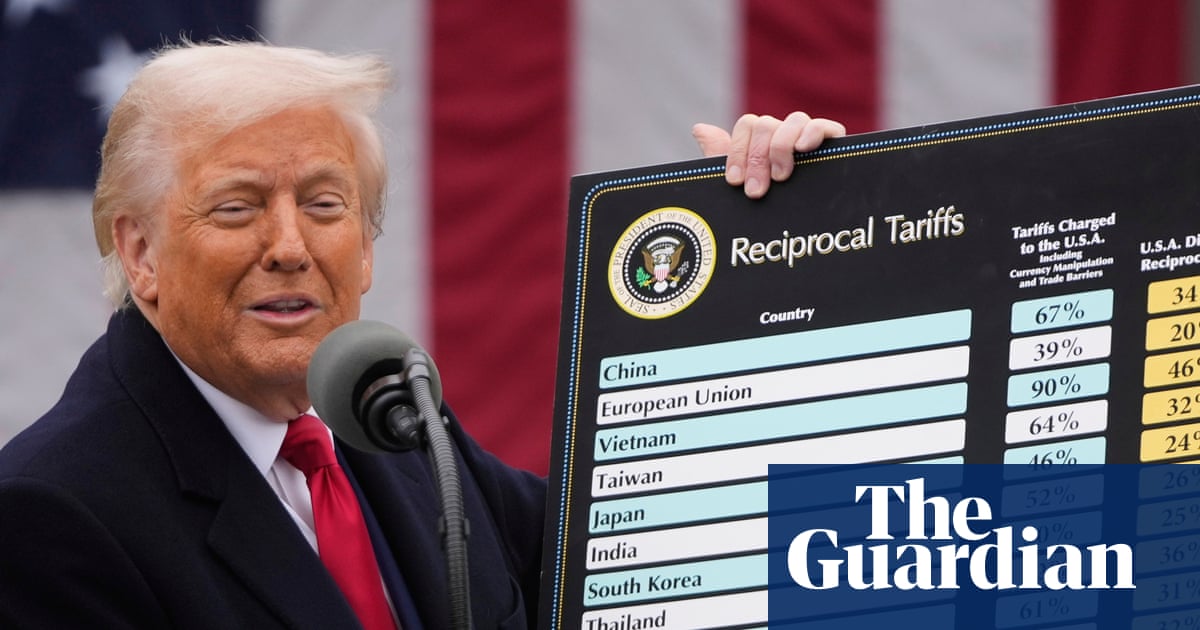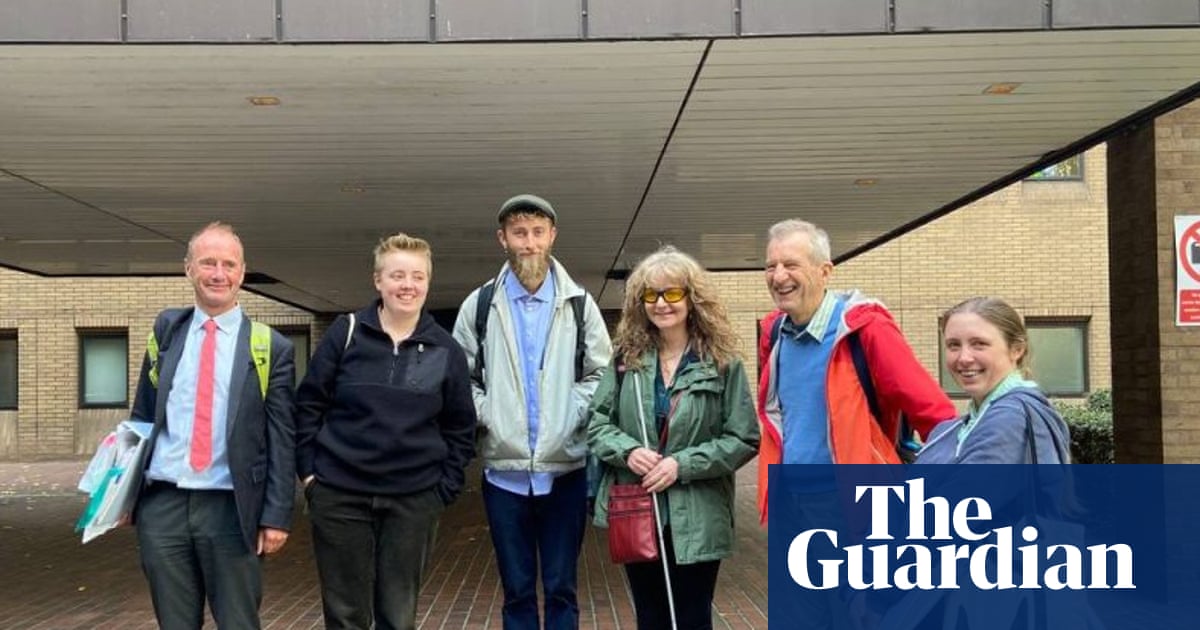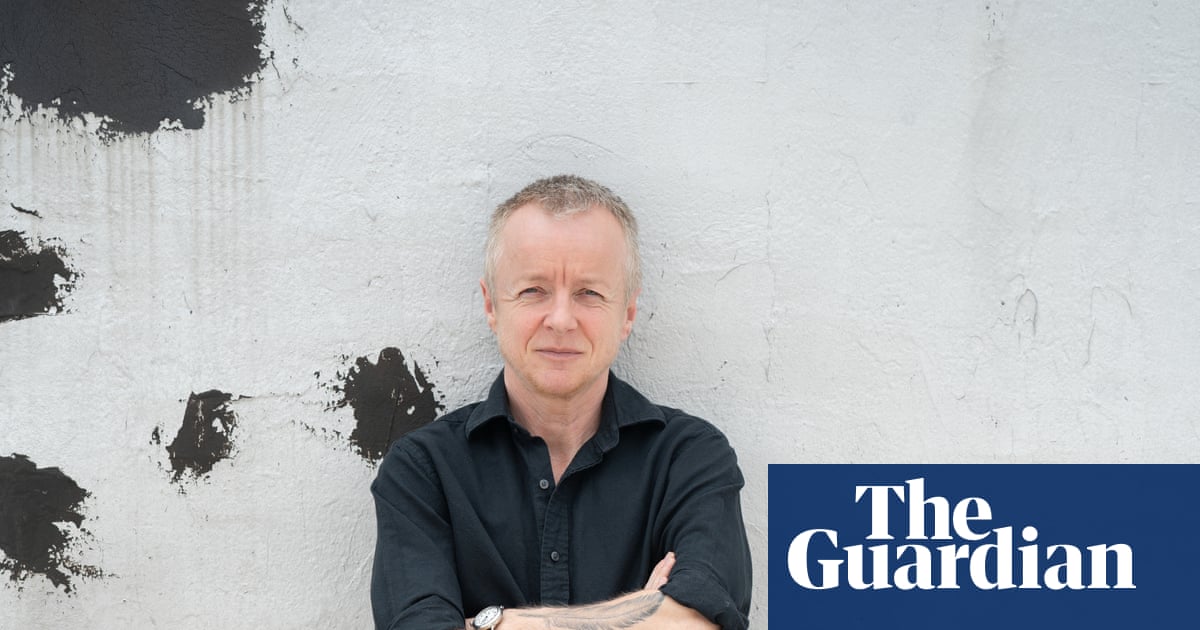What are we going to do about the climate crisis? As extreme weather events become the new normal, we still hear from “sceptics” who think the energy transition is unnecessary, a massive leftwing plot. Hannah Ritchie, a global development data scientist and the author of Not the End of the World, has followed that work up with a book that addresses 50 objections to the adoption of greener technology.
To start with, we need some tough love. It’s time, Ritchie insists, to abandon the slogan “Keep 1.5 alive”, referring to an aspiration to limit global warming to 1.5C above preindustrial levels. “The 1.5C target is dead,” she announces flatly. “The public – who are repeatedly told that 1.5C is still within reach – will start to lose trust when we pass that target.”
And then there is the good news. “Since peaking in 2008,” Ritchie reports, “the amount of fossil fuels being burned for electricity in the UK has fallen by almost half.” Battery technology has vastly improved and continues to do so. The solar panels China installed just in May of this year would meet the electricity needs of the whole of Poland.
There is similar hope, Ritchie explains, for the prospects of mineral recycling, low-carbon cement, electrified ferries and hydrogen as a fuel for airliners. Meanwhile, most of the objections to increasing our use of solar, wind and nuclear energy are bogus.
One route to bogosity is to dazzle the reader with large dollar costs for the rollout of greener technology, but Ritchie recommends always asking: “Is that a big number?” Compared with decades of fossil fuel subsidies and the health costs of pollution from coal plants, probably not. Always ask, too, “How old is the data?”: as Ritchie points out, the cost of solar power has fallen by more than 90% in the last decade. Beware undated graphs on X.
This is a refreshingly pragmatic and undoomy book, which dismantles a lot of dubious arguments, including those made by deep-green degrowthers. Yes, electric cars take a little more carbon to build than petrol cars, but they pay off that debt quickly. No, nuclear power is not dangerous. No, carbon capture is not going to work on a planetary scale. Don’t wind turbines “kill all the birds”, as Donald Trump has said? Yes, they do kill some, but buildings kill 500 times as many just by standing there, and no one is proposing we demolish Trump Tower to save the birds.
Ritchie is particularly good on air conditioning, which some activists deplore. “If someone living in heat can’t afford air conditioning, they’re living in fuel poverty,” she argues. Plus, if your air conditioning is solar powered, you are using the sun to counteract the sun, which has a pleasing symmetry. Instead of shaming coolness, we could rethink our other priorities. According to a graph Ritchie reproduces, datacentres are forecast to require more global electricity in 2030 than desalination plants – you know, the things that make clean drinking water. Will all the AI slop be worth the thirst?
after newsletter promotion
It is a shame that she regularly urges the reader to consider their own “carbon footprint”, a concept that was popularised by oil giants such as BP in order to deflect responsibility for global warming on to individual citizens. You can go vegan, stop taking aeroplanes and wear a hair shirt for the rest of your life in an ecstasy of virtuous self-denial, but that won’t make the slightest bit of difference to the planet’s climate. What we need is collective action.
Collective action is often anathema to conservatives, of course, and near the end the author does leave an opening for those who believe talk of climate action is just a subterfuge for enforcing leftist policies. “This transition is not a sacrifice,” Ritchie writes, “it’s an opportunity to build a better, fairer and more sustainable world.” Wait, I thought we were talking about mitigating risks from global warming, not building a fairer world. Many people might agree that we should smuggle in a more egalitarian politics under cover of environmental concern, but opponents will just point to such talk as evidence of a greenwashed conspiracy.

 1 month ago
49
1 month ago
49

















































